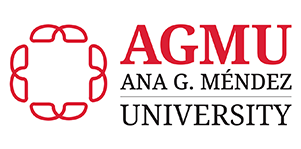Master of Science in Counseling with specialization in Clinical Mental Health
The Master of Science in Counseling with a specialization in Clinical Mental Health is designed to prepare candidates with the knowledge and skills necessary to work with individuals, groups, and families presenting with a variety of mental and emotional disorders, as well as to promote mental health and wellness. The program prepares students to be capable and responsive licensed professional counselors in a variety of settings, as well as to engage in consultation and collaboration with other professionals.
Employment Opportunities
The U.S. Bureau of Labor Statistics states that mental health counselor positions will grow by 25% through 2029. Mental health counselors may work in a variety of mental health settings like hospitals, mental health centers or organizations, schools, wellness centers, employee assistance programs, private or group practices, among others. Some careers are:
- Mental Health Counselor
- Psychotherapist
- Clinical Therapist
- Child and family Counselor
- Marriage and Family Therapist
Accreditation Status
This program is currently not accredited by CACREP. It is the responsibility of the student to understand all current requirements for licensure in the state/territory where they plan to seek initial licensure.
Admissions are subject to program capacity.
About the Program
The Master of Science in Counseling with a specialization in Clinical Mental Health is a fully online graduate
program designed to prepare students for professional licensure and clinical practice in diverse mental health
settings. Delivered through the Online Division of the Metro Orlando Campus, the program is grounded in a
developmental, multicultural, and ethical framework. It equips future counselors with the competencies needed
to address the emotional, behavioral, and psychological needs of individuals, families, and communities across
the lifespan.
Students engage in a curriculum aligned with national counseling standards and gain supervised clinical experience
through practicum and internship courses. The program fosters critical thinking, ethical decision-making, cultural
humility, and advocacy skills essential for today’s mental health professionals.
Graduates are prepared to work in community agencies, private practices, integrated health systems, and other clinical environments that serve populations with diverse needs.
Delivery Type
The program is part of the Online Division of the Metro Orlando Campus.
AGMU has determined that its curriculum meets the state educational requirements for licensure or certification as a Mental Health Counselor in specific states.
Click here for more information
Program Administration & Faculty
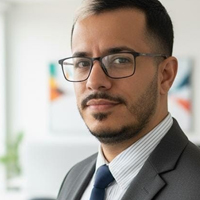
Dr. Julio A. Cruz Rodríguez, LPC, LMHC, CPC, NCC, ACS
Dr. Cruz holds a Doctorate in Education with a specialization in Educational Management and Leadership, a Master of Arts in Counseling, and a Post-Master’s Certificate in Mental Health Counseling. He is licensed as a Professional Counselor in Puerto Rico and Wisconsin; as a Mental Health Counselor in Florida and Iowa; and as a Clinical Professional Counselor in Nevada. He is also a National Certified Counselor, an Approved Clinical Supervisor, a Qualified Supervisor in Florida, a Certified Mentor/Supervisor for Professional Counselors in Puerto Rico, a Primary Supervisor in Nevada, a Certified Sexologist, and a Certified Telehealth Practitioner. He brings over ten years of experience in private practice, counselor education, and clinical supervision, with expertise in career counseling, couples and family counseling, grief and loss counseling, and oncological counseling. He currently serves as Vice President of the Puerto Rico Board of Examiners of Professional Counselors and is the Founder and Executive Director of the Puerto Rico Professional Counselors Alliance.
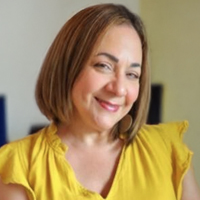
Dr. Dorelys Rivera Dávila, LPC, LMHC, NCC
Dr. Rivera holds a Doctorate in Education with a specialization in Guidance and Counseling, a Master’s in Education in Guidance and Counseling, and a Bachelor’s in Social Work. She is licensed as a Mental Health Counselor in Florida and as a Professional Counselor and Social Worker in Puerto Rico. Additionally, she is credentialed as a National Certified Counselor and a Qualified Supervisor in Florida. Dr. Rivera brings over fifteen years of combined experience in counseling, education, and clinical supervision, with expertise in mental health counseling, counselor training, and faith-integrated therapeutic practice.
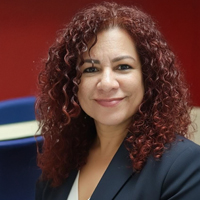
Dr. Mary Ann Martínez Santiago, LPC, LMHC, CCMHC, ACS
Dr. Martínez holds a Doctorate in Education with a specialization in Guidance and Counseling, a Master’s in Education in Guidance and Counseling, and professional certifications in Sex Therapy and Marriage and Family Therapy. She is licensed as a Professional Counselor in Puerto Rico and as a Mental Health Counselor in Florida, and holds credentials as a National Certified Counselor, Certified Clinical Mental Health Counselor, and Approved Clinical Supervisor. With nearly three decades of experience in counseling, clinical supervision, and higher education, Dr. Martínez has served as an educator, clinician, and mentor to emerging professionals in the field of mental health counseling. She currently serves as President of the Puerto Rico Board of Examiners of Professional Counselors.
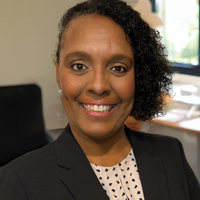
Dr. Carmen England Bayrón, LMHC, LPC
Dr. England holds a Doctorate in Education with a specialization in Counseling and Guidance, a Master of Science in Counseling with a focus on Family, Marriage, and Children, and a Bachelor’s degree in Human Resources Management. She is licensed as a Mental Health Counselor in Florida and as a Professional Counselor in Puerto Rico. Dr. England brings over twenty years of experience in higher education, clinical practice, and supervision within diverse multicultural settings. She also serves as a faculty mentor for the Clinical Mental Health Counseling Student Association.
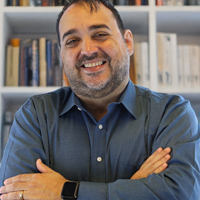
Dr. Billy Santiago Bermúdez, LP, NCC
Dr. Santiago holds a Doctorate in Clinical Psychology, a Master of Arts in Industrial and Organizational Psychology, and a Bachelor of Arts in Social Sciences with a major in Psychology. He is licensed as a Psychologist in Puerto Rico and is a National Certified Counselor. Dr. Santiago brings over twenty years of experience in counselor education and clinical supervision across academic and professional settings. He also maintains a private practice specializing in addiction counseling and mental health services for diverse populations.
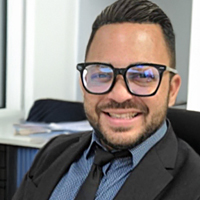
Dr. Lucilo Salas Pérez, LPC
Dr. Salas holds a Doctorate in Education with a specialization in Counseling, a Master’s in Education with a concentration in Counseling, and a Bachelor’s in Special Education with a concentration in Visual Impairments. He is licensed as a Professional Counselor in Puerto Rico and holds certifications in School Counseling, LGBT Clinical Intervention, and Distance Counseling and Therapy. Dr. Salas brings extensive experience in clinical practice, teaching, and community engagement, with a strong focus on diversity, inclusion, and social justice.
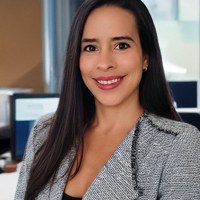
Dr. Vicmarie Vargas Acevedo, LP
Dr. Vargas holds a Doctorate in Clinical Psychology and a Bachelor of Arts in Psychology. She is a licensed Psychologist in Puerto Rico, certified in Health Psychology, and trained in Clinical Supervision in Counseling. She has extensive experience in clinical practice, counselor education, and clinical supervision within graduate counseling and psychology programs.
Mission
To produce graduates with a national, international, and global perspective; respect for human diversity; an understanding of scientific principles; and advanced skills as practitioners who facilitate optimal mental and emotional health and well-being for individuals, families, and communities.
Program Learning Objectives
- PLO 1. Explain professional practices, ethical and legal standards, historical foundations, and professional roles.
- PLO 2. Employ cultural, social justice, advocacy, theoretical approaches, and strategies to counseling relationships with diverse populations.
- PLO 3. Apply human growth and development theories and principles to counseling practices, promoting development and wellness across the lifespan.
- PLO 4. Apply theories, strategies, and models of career development, counseling, and decision-making with culturally diverse populations.
- PLO 5. Apply theories, skills, and approaches to counseling practice integrating ethics, consultation, and crisis intervention.
- PLO 6. Apply theoretical, ethical, cultural, and social justice skills, methods, and principles to group counseling practice.
- PLO 7. Administer testing and measurement instruments using ethical standards, cultural sensitivity, and appropriate statistical concepts for individual and group assessment.
- PLO 8. Analyze research and statistical methods and strategies in evidence-based practice, supervision, and program evaluation, considering ethical and cultural implications.
- PLO 9. Apply skills and practices to address issues in clinical mental health counseling practice, integrating ethical, cultural, diversity, and advocacy perspectives.
Admission Requirements
- Bachelor’s degree from an accredited or internationally recognized institution with a GPA ≥ 3.0 on a 4.0 scale (graduate credit may help demonstrate aptitude if GPA < 3.0).
- Official transcripts from institutions where a degree was earned (additional transcripts may enhance the application).
- Two letters of recommendation from professionals who can assess aptitude for graduate education in counseling.
- A 2–4‑page personal essay.
- A résumé or curriculum vitae (CV).
- An interview with the program’s admission committee.
Program Costs
Annual Evaluation Report
View 2024–2025 Annual Evaluation Report.
Financial Information
View Financial Aid Information
Minimum Degree Requirements
Download Program Requirements (PDF)
